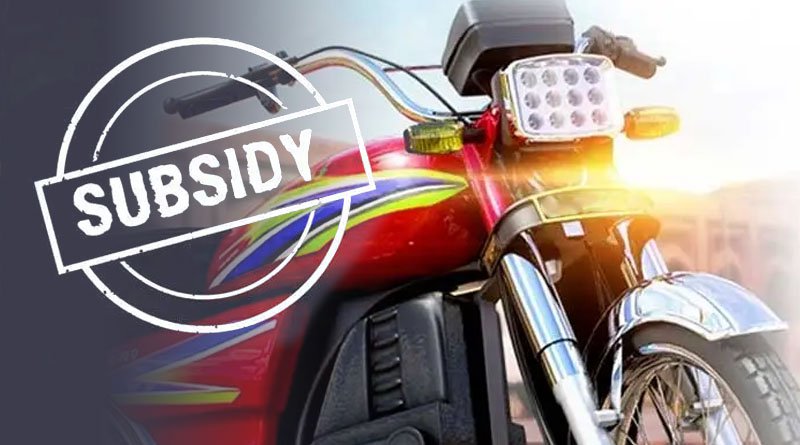In the subsidy leasing model of e bikes, govt and the consumer each contribute Rs 100,000, while the banks provide Rs 70,000 as a loan with a 50% government credit guarantee.

In order to diversify fuel consumption and contribute to the reduction of carbon emissions, the Ministry of Industries and Production has developed a plan to produce 100,000 e-bikes in the first 18 months. To promote the purchase of relatively more expensive e-bikes, the ministry has suggested a subsidy of Rs 17.5 billion over the course of three years.
Following the presentation of the plan at the most recent cabinet meeting, the prime minister forwarded it to the Economic Coordination Committee for additional discussion and work on the financial model.
According to the plan, the government would put down subsidy of Rs. 90,000 for an electric bike with an estimated price of Rs. 170,000, and the buyer would put down Rs. 10,000, making the total initial payment of Rs. 100,000. t is alleged that the bank would give loans if the government provided guarantees.
A 24-month instalment plan has also been provided through the proposed scheme, under which the customer will pay Rs. 4,310 per month, which consists of the Rs. 2,917 principal, Rs. 1,109 in interest payments, and Rs. 284 in insurance payments (2 pc).
According to the plan, the ministry anticipates producing and selling 15,000 e-bikes in the current fiscal year and 60,000 and 100,000 e-bikes in the following two fiscal years, for a total of 175,000 e-bikes produced over the three-year period.
Through the subsidised programme, e-bikes will be made available to students whose parents are employed, female students and employees (20 percent quota), transgender people (1 percent quota), government workers, self-employed and salaried private sector workers with NTNs and bank accounts, government and armed forces retirees, and Imam Masjid/Hafiz Quran/Muazzam who have earned the necessary qualifications from a school approved by the government of Pakistan (endorsed by the Ministry of Religious Affairs).
The working paper for the programme suggests three different subsidy models, including cash purchases, where consumers would pay a lump sum of Rs. 70,000 from their own resources and the government would split Rs. 100,000 through banks.
In the subsidy leasing model of e bikes, the government and the consumer each contribute Rs 100,000, while the banks provide Rs 70,000 as a loan with a 50% government credit guarantee.
According to the third model, the government will cover the 30 percent down payment of the subsidy with a 50 percent financing subsidy and a 50 percent credit guarantee. It has been suggested that PSO might be given the assignment of installing EV chargers at specific locations in the target cities as well as special metres for business charging stations that would be metered according to the solar tariff.
The first cities where the plan might be implemented are Islamabad, Peshawar, Quetta, Lahore, and Karachi.
According to an official statement, Pakistan can produce 6 million motorcycles annually and currently has 90 companies producing both motorcycles and auto rickshaws. In the meeting, it was also disclosed that 22 companies have received authorization to manufacture e-bikes.